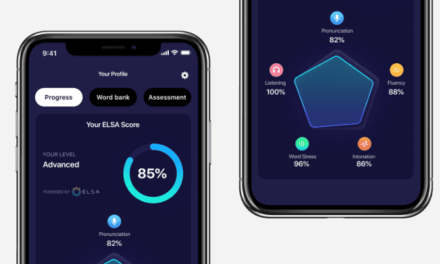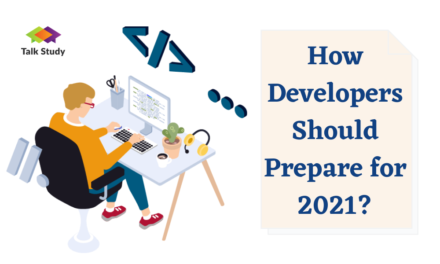Beverley Oliver is Emeritus Professor and Principal Consultant at EduBrief. She is a Principal Fellow of the Higher Education Academy and an Australian National Teaching Fellow based in Melbourne, Australia. She is a non-executive director at Open Learning, an ASX-listed company, at EduGrowth, Australia’s not-for-profit acceleration network for high-growth, scalable, borderless education, and at the International Council on Badges and Credentials.
Beverley was formerly Deputy Vice-Chancellor Education at Deakin University (2013-18). She is the founder and editor of the Journal of Teaching and Learning for Graduate Employability. Beverley now works as a higher education consultant, speaker, and researcher focusing on digital education, micro-credentials, curriculum transformation, quality assurance, and graduate employability.

Everyone, even governments, seem to be very excited about micro-credentials. What are they, and why is there so much interest? And can they really help careers flourish post-COVID, and if so, what should learners look for in micro-credentials? Before we delve in, let’s talk about “macro credentials” – the formal qualifications we are all familiar with: VET certificates, Bachelor and Master degrees. These are educational markers that signify past achievement and potential future performance. Employers use them, along with other key signals, to judge a candidate’s capability and fit.
But several things about formal qualifications are increasingly questioned: they require serious financial and temporal investment, they may be hard to “read” in terms of exactly which skills a candidate has demonstrated, and they might not be the best solution to the rapid upskilling and re-skilling required in the new world of work, now accelerated because of COVID-19.
Enter micro-credentials – there is no universal definition, but most people describe them as certifications of learning shorter than a formal qualification. Once we might have simply called them short courses (many people still do) but the way we signal the learning achievement has morphed form physical to digital certificates, including badges.
This is where some of the confusion has arisen: a digital badge is a token that anyone can issue to anyone else. Some are for assessed learning, some are for attendance, or simply demonstrating a particular behaviour (like joining an online forum, for example). We have also seen a rapid increase in brand names and terminology: micro-credentials are also known as alternative credentials, MOOCs, certifications, short courses, bootcamps, intensives, MicroMasters, masterclasses, nano degrees, Specialisations…all very confusing for employers. What do they all mean, which should I trust, which one signals that this candidate has the right skill for for my business right now, or in the future?
It’s confusing for learners too: micro-credentials are often shorter and less expensive for learners, but will they deliver a promised career benefit? The evidence to date is scant. Increasingly, micro-credentials are touted as the skills bridge to a new or better career, but whether they are in the long run is as yet unknown.
Regardless, there is no sign that macro credentials are about to disappear, although enrolments in certain types of formal qualifications, like postgraduate qualifications, may experience a downturn. But wait there’s more: another recent development is that micro-credentials are credit-bearing: this means that they may be the admissions mechanism to a formal qualification, or they may even earn credit towards one. But many operate completely separately from any qualifications.
Increasingly, micro-credentials are often offered by commercial companies, not just traditional educational providers. For example, the Coursera platform hosts professional certificates offered by IBM and Google. These are very targeted and are (often) designed for learners with no prior experience to be employable in a particular role, such as IT support or customer support. Evidence of success is scant, but the companies – Google, Facebook, SAS, IBM – are clearly investing in targeted talent creation and acquisition. The image below shows some of the possibilities when we try to classify micro-credentials.

Given this level of disruption, what should learners look for in a micro-credential? If the learner wants to learn out of personal interest, they should look for a micro-credential that gives them the intellectual stimulation they are craving. However, if career advantage is the prime motivator, the learner should weigh up the time and money to be invested in acquiring the micro-credential, with the value they are likely to derive (good value means that the benefit matches or outweighs the investment).
Moreover, career-incentivized learners should think about the signaling power of the micro-credential: will their intended future employer have regard for the credential or the provider? At the heart of this judgment should be the quality of assessment: was the learner required to perform a complex and demanding assessment task with certainty about their identity, or was this a simple knowledge-based assessment that anyone could have completed on their behalf. This is the main part of certified learning: an educational provider certifies that the learner has achieved a certain learning outcome because it has been demonstrated at least once by that learner.
However, to keep things in perspective, careers and employment opportunities are built on more than credentials, whether they are micro or macro. They are complex interweavings of personal skills and attributes, experience and integrity.
Trust is at the heart of employment – and trust is also at the heart of credentialling: a learner trusts that the provider is assessing their learning appropriately and at the right level, based on a contemporary curriculum. They also trust the credential will send an appropriate signal to others. Employers trust providers that their credentials send accurate signals about capability. In all forms of credentialing, trust and value are key. Whether the current disruptive wave around micro-credentials becomes an enduring improvement to education remains to be seen.
This content was found at https://www.cdaa.org.au/blog/why-the-fuss-about-micro-credentials
Like this? Then you’ll love…https://talkstudy.co/professional-development/how-this-vietnamese-entrepreneur-won-googles-backing-for-her-a-i-app/






Recent Comments